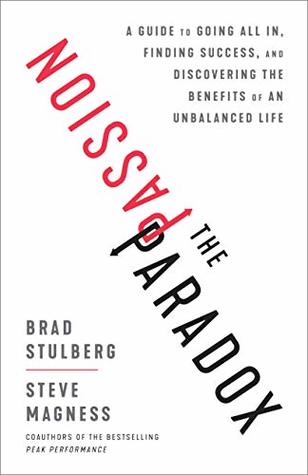More on this book
Community
Kindle Notes & Highlights
“Nothing is as important as passion. No matter what you want to do with your life, be passionate. The world doesn’t need any more gray. On the other hand, we can’t get enough color. Mediocrity is nobody’s goal, and perfection shouldn’t be either. We’ll never be perfect. But remember these three P’s: Passion plus persistence equals possibility.” —Jon Bon Jovi, 2001 commencement address, Monmouth University, West Long Branch, New Jersey1
Passion is fragile, and it must be handled with care.
Born out of the Latin word passio, which means “suffering,” for the vast majority of history, passion meant just that: suffering, misery, and anger.
In many ways, passion and suffering are still very much connected.
We don’t get hooked on the feeling associated with achievement, we get hooked on the feeling associated with the chase.
We’re not wired to simply be content. We’re wired to keep pushing.
The line between what we consider a destructive addiction and a productive passion is a fine one, if such a line exists at all.
There is a biological reason why the wonderful feeling of passion cannot coexist with the wonderful feeling of contentment. Passion builds on itself: the more we push, the more we get hooked on the feeling of pushing.
It’s not surprising that so many great athletes, creatives, and entrepreneurs, following their retirement, struggle with substance abuse and gambling addiction. If we don’t move on from our passions thoughtfully (a topic we’ll discuss later on), the same underlying biology and psychology that give rise to excellent pursuits can also give rise to harmful ones. Passion and addiction are close cousins.
A better approach to finding your passion is to lower the bar from perfect to interesting, then give yourself permission to pursue your interests with an open mind.
Interest is an invitation to exploration, drawing your attention toward activities that have the potential to grow into something greater.
Hedonic adaptation says that we quickly adapt to a state of happiness or contentedness, and it’s not long before we’ll want more. The Buddha called this suffering.
As a long-term motivator, fear of failure quickly becomes toxic.
Your passion should not come from the outside. It should come from within.
Those who focus most on success are least likely to achieve it. Those who focus least on success, and focus on the process of engaging in their craft instead, are most likely to achieve it.
Don’t judge yourself against others. Judge yourself against prior versions of yourself and the effort you are exerting in the present moment. This is about as healthy a form of competition as there is.
First, set a goal—but remember, it should serve more as a direction than a destination. Next, figure out the steps that are required to make progress toward that goal and that are within your control. Then (mostly) forget about the goal, and focus on nailing the steps instead.
It’s a bit paradoxical, but the key message here is, what is important doesn’t necessarily get our attention; what gets our attention becomes important.
In summary, the mastery mind-set contains six key principles: Driven from within. Focus on the process. Don’t worry about being the best; worry about being the best at getting better. Embrace acute failure for chronic gains. Be patient. Be here now.
He also knew that passion and balance are hard, if not impossible, to reconcile.
Our time, attention, and energy are limited. The more passionate we become about any one pursuit, the less of ourselves we have to offer to everything else.
Living with passion is, by definition, living without balance.
Practicing self-awareness allows you to more honestly evaluate and reevaluate the trade-offs inherent to living an unbalanced, passionate life.
Maybe the good life is not about trying to achieve some sort of illusory balance. Instead, maybe it’s about pursuing your passions fully and harmoniously, but with enough self-awareness to regularly evaluate what you’re not pursuing as a result—and make changes if necessary.
When it comes to living with passion, it’s not about balance. It’s about marrying strong harmonious passion, the best kind of passion, with an equally strong self-awareness, a topic we’ll turn to next. Doing so trumps balance any day.
Self-awareness allows you to honestly and objectively evaluate your passion and, if necessary, shift course or apply the brakes.
When we lose perspective—when all we can see is our passion—we lose the ability to choose what we want to do with our lives.
Keeping death at the forefront of your mind is one of the best ways to ensure you live the life you want to live.


